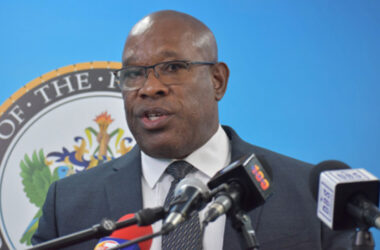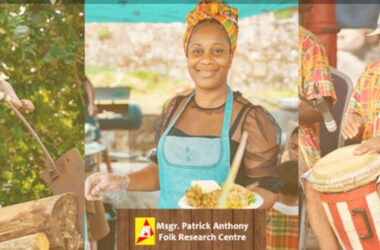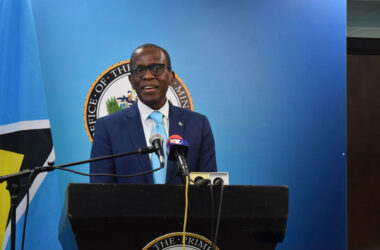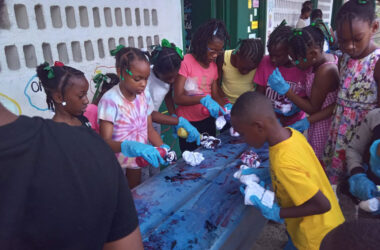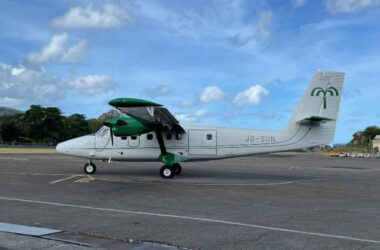AT the recently-concluded Caribbean Safe School Ministerial Forum held on April 3 and 4 in Antigua and Barbuda, the Caribbean Disaster Emergency Management Agency (CDEMA) reiterated its commitment to championing the Caribbean School Safety initiative towards building a culture of safety within the education sector.
“I am pleased to indicate that the Safe Schools initiative will be a flagship programme of the CDEMA Coordinating Unit for the Corporate Planning Period 2017-2020,” said Elizabeth Riley, Deputy Executive Director of CDEMA.
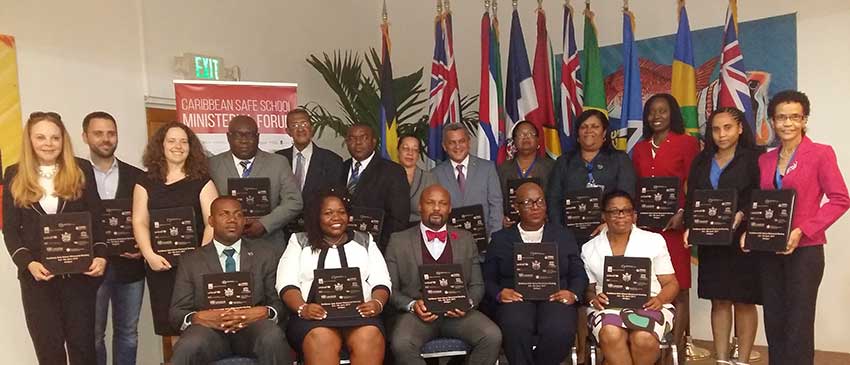
The CDEMA Coordinating Unit has a long history of supporting the integration of disaster risk management into the education sector through the development of technical resources to support policy, school readiness and resources to support the infusion of disaster risk management concepts into the curriculum.
During the forum, which was hosted by Michael S. Browne, Minister of Education, Science and Technology (Antigua and Barbuda), other Ministers of Education and high-level officials endorsed and signed the Antigua and Barbuda Declaration for School Safety.
The Caribbean Safe School Initiative (CSSI) was also launched, which presents the framework to advance school safety in the Caribbean and at the same time reflects the Caribbean contribution to the Worldwide Initiative for Safe Schools (WISS).
“Education is key to engendering a ‘culture of safety’ given its central role in shaping knowledge and behaviour and is, therefore, a priority sector in the Regional Comprehensive Disaster Management (RCDM) Strategy. The opportunity to advance education sector resilience is now and ownership and leadership by the education sector is critical if we are to build resilience in the sector,” said Riley.
She also reminded the Forum of the vulnerability of the Caribbean region and, by extension, the high risk and vulnerability of the education sector.
“The vulnerability of the education sector in the Caribbean has been shown in the impacts of extreme events in CDEMA Participating States. Hurricane Ivan in Grenada in 2004 resulted in damage equivalent to 212% of GDP and only 2 out of 75 schools were operational post-impact. Estimated damage to the education sector was EC$215 million. Significant losses in the education sector are not restricted to catastrophic events but are also seen in the cumulative damage of smaller events.”
The CDEMA Model Safe School Programme and Toolkit for the Caribbean has been endorsed by Ministers with responsibility for disaster management in CDEMA Participating States. It promotes a comprehensive and holistic treatment of risk in the school environment and expands the perspectives of school safety beyond the traditional singular focus on emergencies, embracing safe learning facilities, school disaster management and resilience education. In this regard, it is congruent with the Comprehensive School Safety Framework and a vehicle for implementing the Worldwide Initiative on Safe Schools (WISS) in the region.
The Caribbean Safe School Ministerial Forum was jointly organized by CDEMA, the United Nations Children’s Fund (UNICEF), the United Nations Office for Disaster Risk Reduction (UNISDR), the United Nations Educational, Scientific and Cultural Organization (UNESCO), the Organization of Eastern Caribbean States (OECS), the International Federation of Red Cross and Red Crescent Societies (IFRC) and was made possible thanks to the financial support of the Austrian Development Agency, the Kingdom of the Netherlands and the Republic of Korea.




